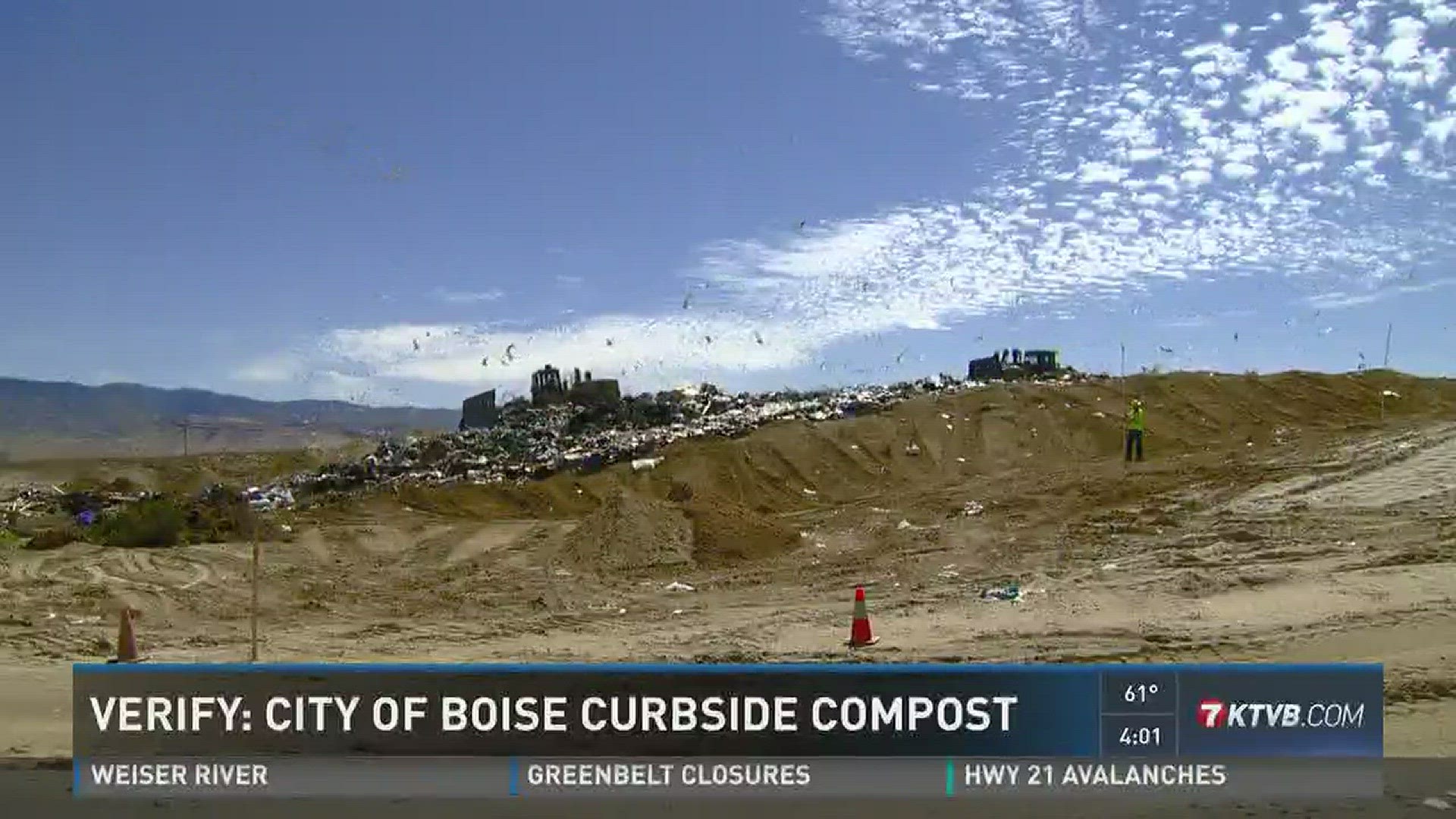If you live in the city of Boise, you have until the end of the month to either opt-in or opt-out of the city's new curbside composting program. It's going to raise people's bills for sure, but is the cost worth it?
Some viewers expressed concern that this program could actually do more harm than good to our carbon footprint.
Ty Plowman, a Boise resident, just learned about the Curb It composting program last week. He reached out to KTVB wanting to know just how environmentally friendly it really is.
KTVB took Plowman to the city to verify the facts of the program.
"It cost a lot of money and fuel to run trash back and forth. I just want to make sure it's really, are we really not generating more than what we're trying to save out there in the landfill," Plowman said.
It's a question that we took to Mike Journee, the City of Boise spokesman, and Colin Hickman, the Public Works spokesman.
"Me as a citizen, I kind of feel like I'm being forced to participate a little bit in this. You know, it's quite a big increase," Plowman said.
"By adding this new service, we hope that while keeping the rates at level that's in line with our neighbors, we can also offer much more to our residents," Hickman said. "This comes down to just bury forever versus being able to reuse it in a beneficial way."
Ty's main concern is about the carbon footprint, specifically more trucks on the road to pick up the cans and the fuel being used in those trucks.
"Its average one truck uses like 6,500 gallons of fuel per year," Plowman said.
"We're talking about compressed natural gas trucks, not diesel trucks. So that's the difference there," Journee added.
"I was kind of unaware at Republic that they had a mixture of diesel and natural gas. I didn't know that they were all natural gas, so that helps a little bit, but it's still fuel," Plowman said.
All the compost material will be going to a different facility just about 20 miles south of town where the materials will be laid out and put into wind rows.
"Wouldn't a better solution to help orient toward that be like a pay-per-use or a pay-per-pound. I mean we have the technology out there nowadays to do that," Plowman said.
"That's a really great suggestion, and there might be somewhere down the road where we have an opportunity to take advantage of that," Journee added.
Currently, the Curb It composting program is just a residential program. There will not be a commercial aspect to this.
"Being a concerned taxpayer and a 25 percent increase in my bill, are these businesses going to see the same increase to help with this program," Plowman asked.
"No, they're not," Journee replied.
"Well that doesn't seem very fair from a citizen’s point of view," Plowman said.
Journee says in the future they would like to bring businesses into the program, but right now are working on implementing the program and make sure that it moves forward.
Plowman, by sitting down with the officials, was able to get most of his questions answered.
"I thought it was a great opportunity. It was nice to meet them. They have a lot of challenges, you know, facing and running a city as well," Plowman said. "In all fairness, I hope that they do follow-up with some more information on that."

